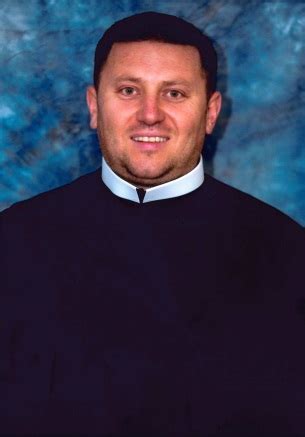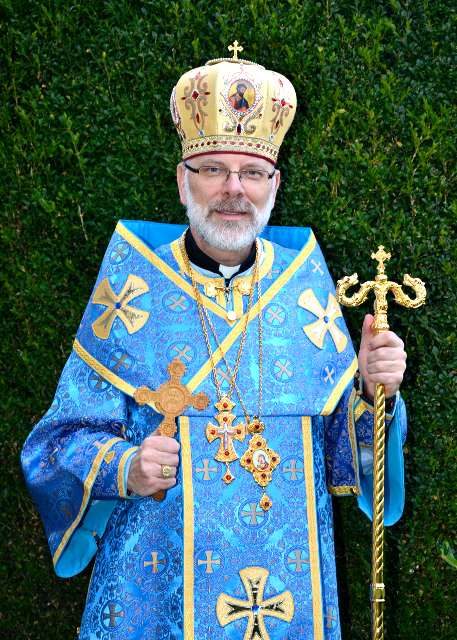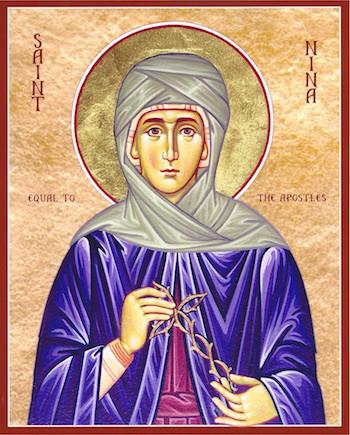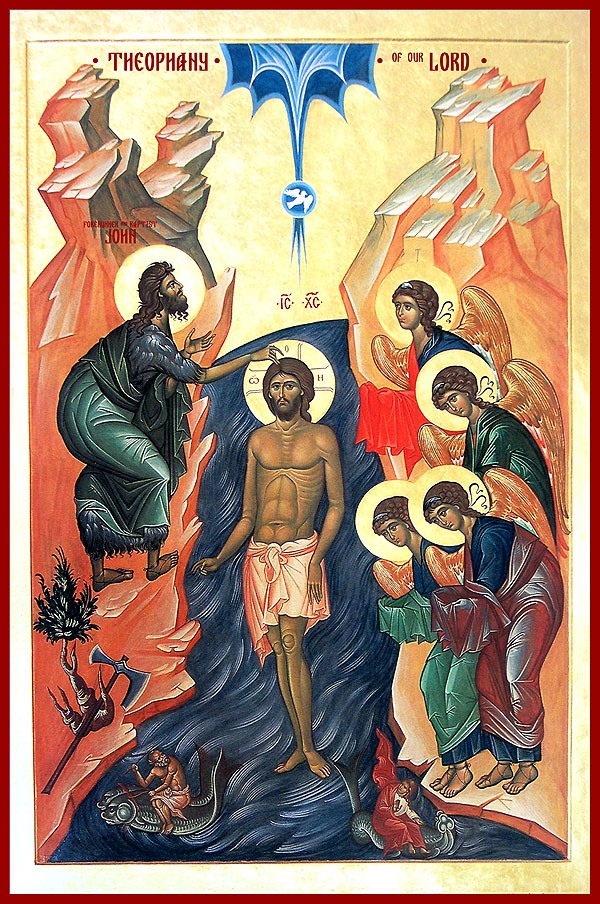Christ is among us!
This week’s vigil light is offered to God’s glory by Katia and Andrew Bamber in memory of Zenon Luciw.
Bernadette Aitro (Gawron) fell asleep in the Lord. Please remember her in your prayers. ETERNAL MEMORY!
Thank you! Dear Parishioners, as you can see, the Roof Repair Fund now totals $37,975.00. Thanks to your generosity, we are steadily nearing our goal of $40,000.00. Please continue with your generous donations to this restricted fund. A complete report will be issued shortly.
HOUSE BLESSINGS: Began on January 8th. If anyone would like to have their homes blessed, please fill out the form already provided and either drop it in the collection basket or return it to Fr. Iura. Thank you.
The Ukrainian National Women’s League of America Branch 108 New Haven and St. Michael Parish will be preparing a Prosphora, a traditional Ukrainian Christmas meal, on Sunday, January 19, after the only one (1) Divine Liturgy at 10:30 a.m. Tickets are $20.00 for adults, free for students Ridna Shkola and altar boys. We will be running a raffle. Please donate items for raffle and cakes for desert. You can buy tickets after each Divine Liturgy in the church hall or contact Anna Salemme 203-934-6520, or purchase tickets at SUMA credit Union.
Sorokousty —All Souls Saturdays will be celebrated on February 15th, March 7th, March 14th, March 21st, and May 30th. Please take a book found in the entrance of the church, fill it out, place it in envelope, and drop it in the collection basket.
Adult Faith Formation
“Behold, the Lamb of God, who takes away the sin of the world!” (John 1:29)
Blessing of the Water and the Sanctification of Homes
Your manifestation in the world is made today, and Your light is seen shining upon us. We fully realize who You are and therefore we sing to You: “You are the Inaccessible Light, and You have made Yourself known to us.” (Kondak, Feast of the Theophany of Our Lord)
Among the various petitions mentioned in the ceremony during the blessing of the water is the sanctification of homes. With this the Church imposes a duty and obligation upon the priests to bless the homes of the faithful entrusted to their pastoral care at the beginning of the New Year. Theologically speaking, the blessing of homes constitutes an invocative blessing, meaning that by his prayer and by the sprinkling of Holy Water, the priest invokes God’s protection upon the home and those living in it. As our souls, so also our homes become tainted by the sins of those living in them and, consequently, lose God’s protective power. Every year, then, at the Feast of Theophany, they should be blessed again to secure for them God’s blessings and protection. Just as the faithful cleanse their soul of sin at least ONCE A YEAR, and the church is blessed with the newly blessed water every year, so should the homes of the faithful be yearly blessed to invoke God’s blessings and protection on it and its inhabitants. As we renew the insurance on our home every year, so we should renew our insurance of God’s protection and his blessings, which is of greater importance and more effective. As we welcome our priest during the holy season of Theophany to bless our homes, let us be mindful that he is bringing to us the “blessing of Jordan,” and that unless God protects and blesses our home, we “labor in vain.” (Ps. 127:1)
 Today, Pope Francis accepted the resignation of pastoral governance of the Eparchy of Saints Peter and Paul of Melbourne of the Ukrainians (Australia) presented by Bishop Peter Stasiuk, C.Ss.R. At the same time the Pope nominated a new bishop of the eparchy Father Mykola Bychok, C.Ss.R., until now the parochial vicar of the parish of St. John the Baptist in Newark, NJ.
Today, Pope Francis accepted the resignation of pastoral governance of the Eparchy of Saints Peter and Paul of Melbourne of the Ukrainians (Australia) presented by Bishop Peter Stasiuk, C.Ss.R. At the same time the Pope nominated a new bishop of the eparchy Father Mykola Bychok, C.Ss.R., until now the parochial vicar of the parish of St. John the Baptist in Newark, NJ. Additionally, Pope Francis nominated as bishop of the Eparchy Holy Family of London of the Ukrainians in Great Britain Bishop Kenneth Anthony Adam Nowakowski, transferring him from the Eparchy of New Westminster of the Ukrainians in Canada.
Additionally, Pope Francis nominated as bishop of the Eparchy Holy Family of London of the Ukrainians in Great Britain Bishop Kenneth Anthony Adam Nowakowski, transferring him from the Eparchy of New Westminster of the Ukrainians in Canada. Today we celebrate St Nina, equal to the apostles.
Today we celebrate St Nina, equal to the apostles. The Kontakion verse for Theophany we pray: “Today, you have appeared to the world and your light, O Lord, has been signed on us, who with knowledge sing your praises. You have come, You have appeared, O unapproachable light.”
The Kontakion verse for Theophany we pray: “Today, you have appeared to the world and your light, O Lord, has been signed on us, who with knowledge sing your praises. You have come, You have appeared, O unapproachable light.”